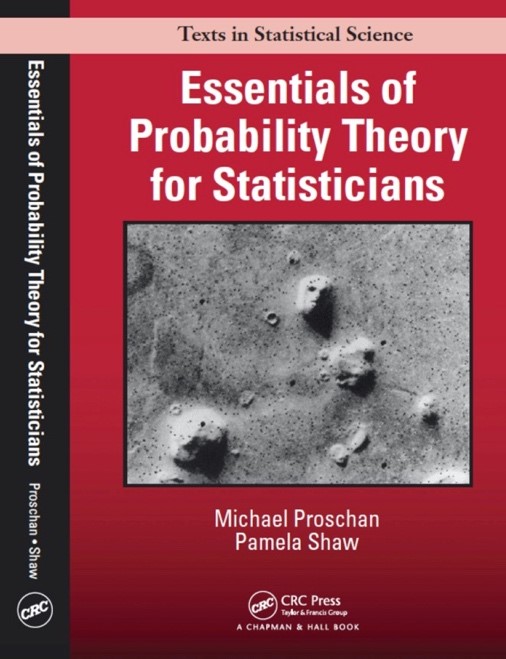Essentials of Probability Theory for statisticians
A textbook that provides graduate students with a rigorous treatment of probability theory, with an emphasis on results central to theoretical statistics. A classic measure-theoretic approach is presented and motivated by examples in biostatistics, such as outlier tests, monitoring clinical trials, and adaptive clinical trial design changes based on accumulating data. Different methods of proofs their usefulness for establishing classic probability results are discussed.

